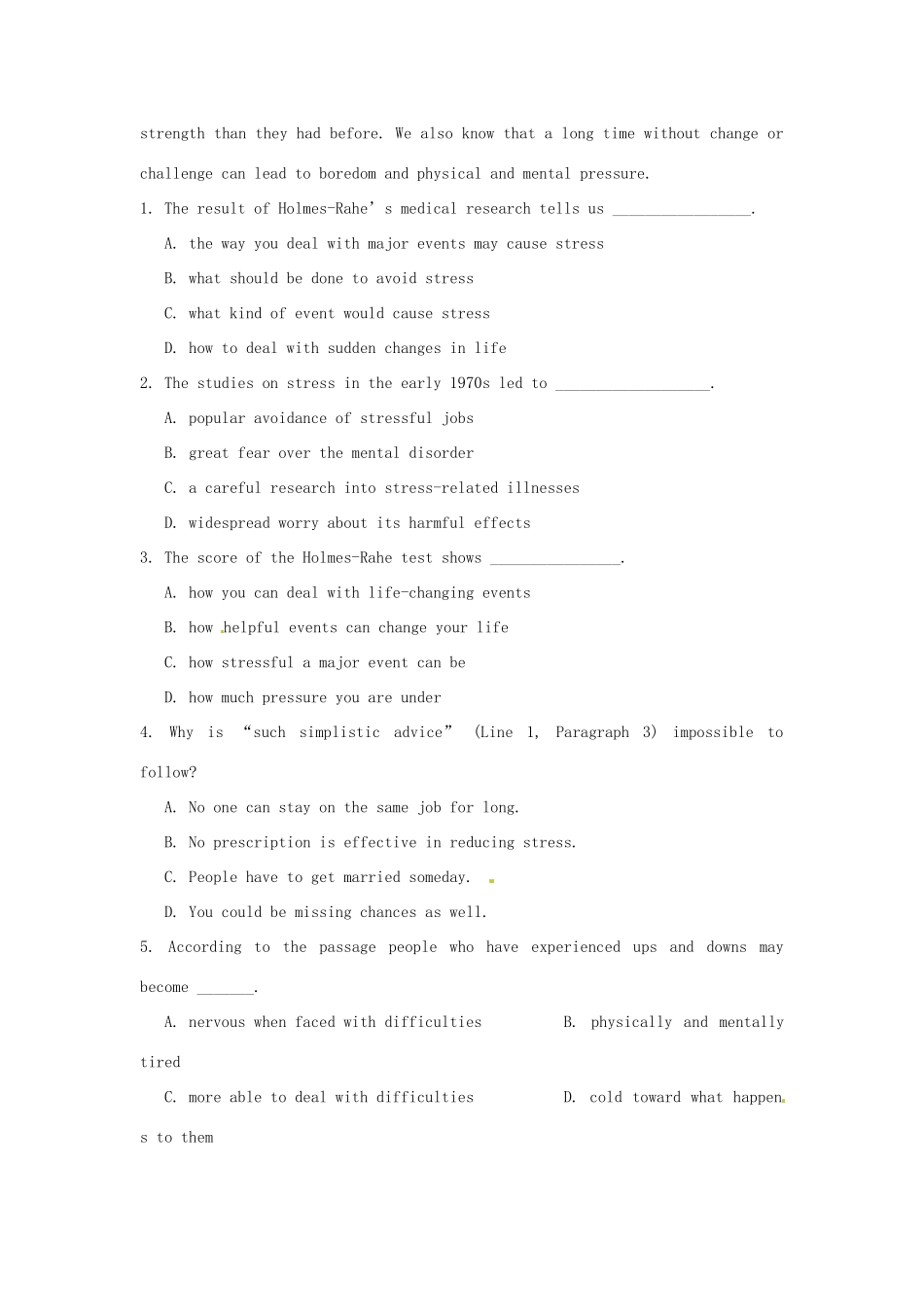江苏省泗阳中学 2013 届高三“艺体类”专项复习:阅读专题四教学素材:In the 1960s, medical researchers Thomas Holmes and Richard Ra he developed a checklist of stressful events. They appreciated the tricky point that any major change can be stressful. Bad events like "serious illness of a family member" were high on the list, but so were some helpful life-changing events like marriage. When you take the Holmes-Rahe test you must remember that the score d oes not show how you deal with stress - it only shows how much you have to deal with. And we now know that the way you deal with these events dramatically (戏剧性的) affects your chances of staying healthy. By the early 1970s, hu ndreds of similar studies had followed Holmes and Rahe. And millions of Americans who work and live under stress worried over the reports. Somehow the research got boiled down to a memorable message. Women's magazines ran titles like "Stress causes illness". If you want to stay physically and mentally healthy the articles said avoid stressful events. But such simplistic advice is impossible to follow. Even if stressful events are dangerous , many — like the death of a loved one — are impossible to avoid. Moreover, any warni ng to avoid all stressful events is a prescription ( 处 方 ) for staying away from chances as well as trouble. Since any change can be stressful, a person who wanted to be completely free of stress would never marry, have a child, take a new job or move. The idea that all stress makes you sick also takes no notice of a lot of what we know about people. It supposes we' re all vulnerable and not active in the face of the difficult situation. But what about human ability and creativit...


